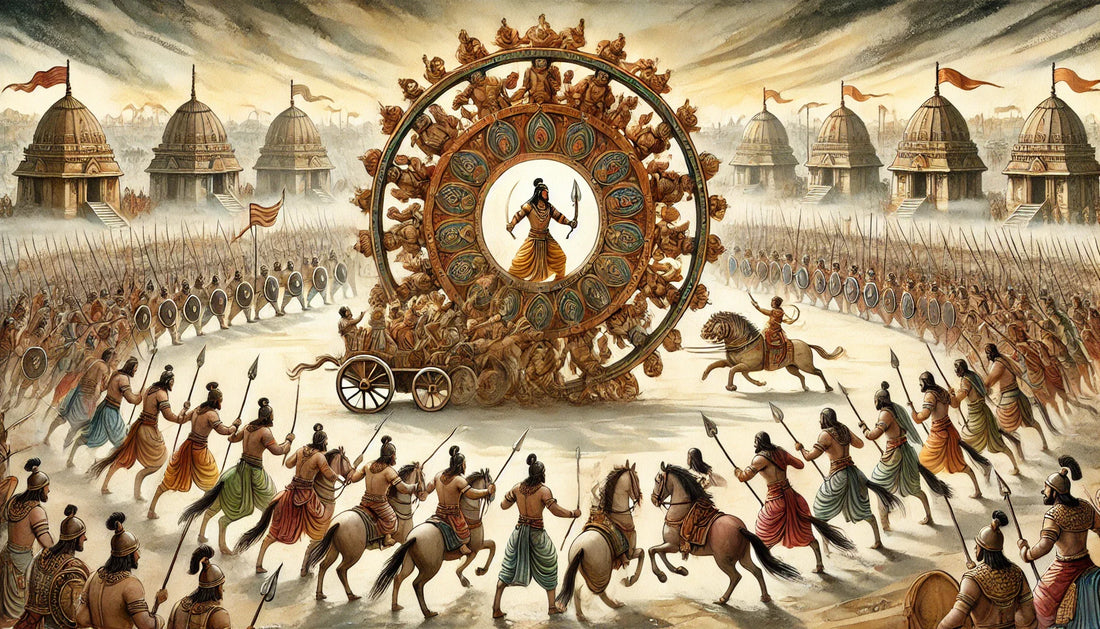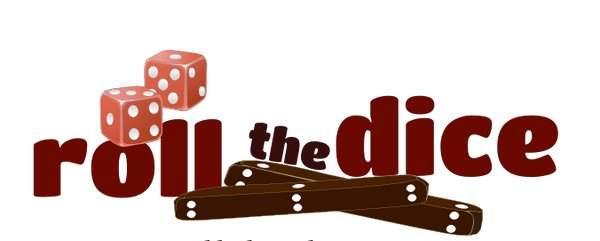
Board Games as Pathways to Indian Mythology: Engaging Young Minds Through Play
Share
Board Games as Pathways to Indian Mythology: Engaging Young Minds Through Play
When it comes to teaching Indian mythology, the challenge often lies in bridging the gap between ancient stories and modern sensibilities. Board games, with their immersive nature and interactive formats, provide an innovative way to make these tales come alive for children. Not only do these games introduce young minds to iconic characters and fascinating stories, but they also promote critical thinking and creativity. In this post, we’ll explore how board games can serve as powerful tools for teaching Indian mythology, making learning a fun and enriching experience.
Why Indian Mythology Matters
Indian mythology is a treasure trove of wisdom, values, and cultural richness. The epics like the Ramayana and the Mahabharata are not merely stories; they are windows into the ethical dilemmas, human emotions, and cosmic truths that shape the Indian worldview. However, teaching mythology in a way that resonates with children today requires creativity and innovation.
Games can bring mythology to life by:
- Making abstract concepts tangible
- Creating emotional connections with characters
- Encouraging collaborative and experiential learning
At Roll the Dice, we have seen how traditional Indian games can be redesigned to embed mythology, sparking curiosity and engagement among children.
How Board Games Help Teach Mythology
1. Story Integration
Board games with narrative elements allow players to step into the shoes of mythological characters. For instance, games inspired by the Mahabharata or Ramayana can recreate pivotal moments, like the Battle of Kurukshetra or the crossing of the Lanka bridge. Players can make decisions that reflect the ethical and strategic challenges faced by the characters.
For example:
- Jaya: The Real Game, Real Heroes recreates scenes from the Mahabharata, teaching players about teamwork, moral dilemmas, and the importance of dharma. This game provides an immersive experience by allowing players to relive key moments from the epic.
- The Race for Modakas game introduces children to Lord Ganesha’s quick wit and wisdom through a fun, competitive format.
2. Visual and Tactile Learning
Games provide a sensory experience that books or lectures cannot. A game like the Eka Shloki Ramayana Puzzle not only engages children in piecing together a story but also helps them memorize key shlokas. The visual elements, such as game boards adorned with scenes from mythology, can be instrumental in sparking interest.
3. Encouraging Role Play
Role-playing games encourage children to imagine themselves as mythological heroes or villains. This immersive approach fosters empathy, helping children understand the motivations and struggles of these characters. For instance, taking on the role of Arjuna or Ravana in a game allows players to experience their perspectives firsthand.
4. Simplifying Complex Narratives
Indian mythology often features complex narratives with interwoven subplots. Games can simplify these stories into digestible chunks. By focusing on a specific episode or theme, games ensure that children do not feel overwhelmed while still gaining valuable insights.
Benefits of Using Board Games to Teach Mythology
1. Cognitive Development
Games that involve strategy, problem-solving, and decision-making enhance cognitive skills. For instance, playing Chowka Bara fosters logical thinking while subtly introducing players to cultural contexts tied to Indian traditions.
2. Social and Emotional Skills
Games often involve teamwork, negotiation, and healthy competition. This dynamic helps children learn cooperation, empathy, and emotional regulation—qualities deeply embedded in Indian mythology.
3. Cultural Awareness
In a rapidly globalizing world, games rooted in Indian mythology connect children to their heritage. By interacting with mythological stories and symbols, children develop a sense of pride and belonging.
4. Moral and Ethical Learning
Mythology is rich in moral and ethical lessons. Games based on the Ramayana or Mahabharata teach values such as dharma (righteousness), karma (actions and consequences), and the importance of truth and justice.
Examples of Mythology-Themed Board Games
1. Navakankari
This traditional game can be reimagined with a mythological twist, where players align symbols representing deities and their vahanas (vehicles). The gameplay encourages strategic thinking while subtly narrating the stories of each deity.
2. Dashavatara Puzzle
This puzzle introduces children to the ten avatars of Vishnu. With vivid artwork and QR codes linking to stories, it creates a multidimensional learning experience.
3. Jaya: The Real Game, Real Heroes
Inspired by the Mahabharata, this game challenges players to strategize, collaborate, and make ethical decisions, just as the characters in the epic do. It’s an excellent way to teach values like teamwork and perseverance while keeping children engaged.
4. Sri Rama Pattabhisheka Puzzle
Depicting the coronation of Lord Rama, this puzzle not only reinforces cultural pride but also celebrates the values of Rama Rajya (an ideal state).
How to Incorporate These Games at Home and School
1. Family Game Nights
Integrate mythology-themed games into family game nights. Not only do they foster bonding, but they also provide a natural platform for storytelling.
2. Educational Workshops
Schools and cultural organizations can host workshops featuring these games. At Roll the Dice, we regularly conduct Indian Board Game Workshops, helping children and adults alike reconnect with their roots.
3. Festive Celebrations
Incorporate these games into festivals like Navaratri or Ganesha Chaturthi. They can serve as a bridge between cultural rituals and recreational activities.
References and Resources
- Indian Mythology: Tales, Symbols, and Rituals (Britannica)
- Ramayana and Mahabharata (Sacred Texts Archive)
- Roll the Dice: Mythology-Inspired Board Games
Final Thoughts
Board games are more than just a source of entertainment; they are gateways to cultural education and moral development. By introducing children to Indian mythology through interactive and engaging formats, we can instill a lifelong appreciation for our rich heritage. Whether you’re a parent, teacher, or enthusiast, mythology-themed board games offer a unique opportunity to learn, play, and connect.
So why not roll the dice and explore the epic tales of Indian mythology today? Visit Roll the Dice to discover a range of games that bring these timeless stories to life.

1 comment
Please arrange a call back